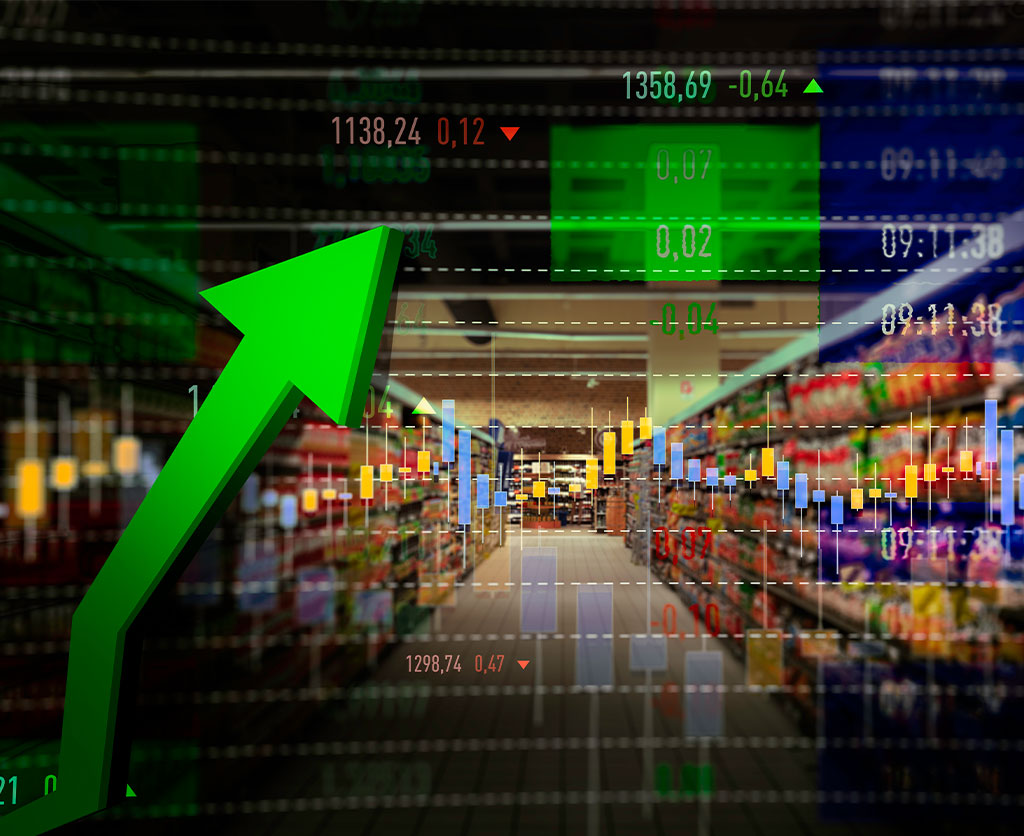How inflation might affect EU Shares in 2023

Inflation has a direct impact on the stock market and can affect the value of shares. In 2023, European shares could be affected by inflation in various ways.
Increasing the cost of borrowing
One of the primary ways inflation could affect European shares is by increasing the cost of borrowing. If inflation rises, central banks may raise interest rates to control it. This could lead to an increase in the cost of borrowing for companies, making it more expensive for them to invest in new projects and expand their businesses. This, in turn, could result in lower profits, lower stock prices, and decreased demand for European shares.
The value
Inflation could also impact the valuation of European shares. When inflation increases, the value of money decreases. As a result, investors may demand higher returns to compensate for the decline in purchasing power. This could lead to lower stock prices, as investors may be hesitant to invest in shares that do not offer high enough returns.
The investors’ sentiment
Another way that inflation could impact European shares is through changes in investor sentiment. If investors believe that inflation is likely to rise significantly, they may become more cautious and risk-averse. This could lead to a sell-off of European shares, as investors move their funds to safer investments such as bonds or cash. In contrast, if investors believe that inflation will remain low or stable, they may continue to invest in European shares, leading to higher stock prices.
If inflation rises in 2023, it could lead to increased borrowing costs, lower stock prices, and changes in investor sentiment. However, if inflation remains low or stable, European shares may continue to perform well. Investors should keep a close eye on inflation rates and other economic indicators to make informed investment decisions.
As we move into 2023, investors are beginning to consider the potential impact of inflation on the European stock market. Inflation is a measure of the rate at which prices for goods and services are increasing, and it can have a significant impact on the value of stocks and other investments.

Here are some ways that inflation might affect EU stocks in 2023:
Consumer Discretionary Sector:
Inflation can lead to reduced consumer spending on these items, which can have a negative impact on the companies within this sector. However, some companies within this sector, particularly those that have a strong online presence, may be able to benefit from increased demand for e-commerce as consumers try to save money by avoiding in-store purchases.
Consumer Staples Sector:
Demand for these items tends to be relatively stable, which means that companies within this sector may be less affected by inflation than those in other sectors.

Energy Sector:
Inflation can lead to increased demand for energy products, which can be positive for companies within this sector. However, rising prices can also lead to increased costs for these companies, which can have a negative impact on their profitability.
Financials Sector:
Inflation can lead to higher interest rates, which can be positive for companies within this sector as they can earn more money on loans and other financial products. However, rising inflation can also lead to higher default rates on loans, which can have a negative impact on profitability.

Healthcare Sector:
Demand for healthcare products and services tends to be relatively stable, which means that companies within this sector may be less affected by inflation than those in other sectors.
Industrials Sector:
Inflation can lead to reduced demand for these goods and services, which can have a negative impact on the companies within this sector. However, some companies within this sector may be able to benefit from increased demand for infrastructure projects as governments try to stimulate economic growth.

As such, investors should consider a diversified portfolio that takes into account the potential impact of inflation on different sectors of the economy. Additionally, they should stay informed about the latest economic data and trends in order to make informed investment decisions.


